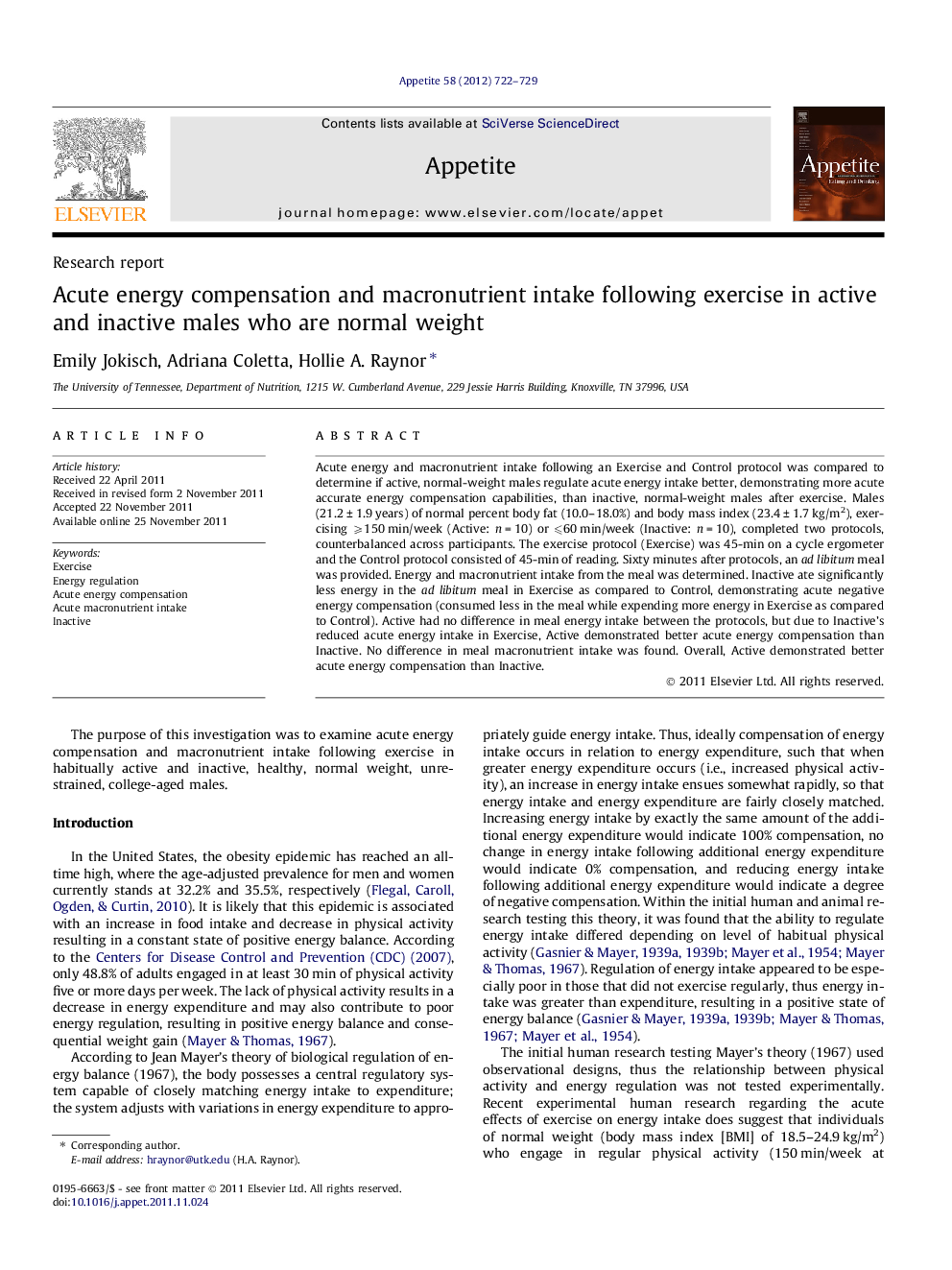| Article ID | Journal | Published Year | Pages | File Type |
|---|---|---|---|---|
| 940535 | Appetite | 2012 | 8 Pages |
Acute energy and macronutrient intake following an Exercise and Control protocol was compared to determine if active, normal-weight males regulate acute energy intake better, demonstrating more acute accurate energy compensation capabilities, than inactive, normal-weight males after exercise. Males (21.2 ± 1.9 years) of normal percent body fat (10.0–18.0%) and body mass index (23.4 ± 1.7 kg/m2), exercising ⩾150 min/week (Active: n = 10) or ⩽60 min/week (Inactive: n = 10), completed two protocols, counterbalanced across participants. The exercise protocol (Exercise) was 45-min on a cycle ergometer and the Control protocol consisted of 45-min of reading. Sixty minutes after protocols, an ad libitum meal was provided. Energy and macronutrient intake from the meal was determined. Inactive ate significantly less energy in the ad libitum meal in Exercise as compared to Control, demonstrating acute negative energy compensation (consumed less in the meal while expending more energy in Exercise as compared to Control). Active had no difference in meal energy intake between the protocols, but due to Inactive’s reduced acute energy intake in Exercise, Active demonstrated better acute energy compensation than Inactive. No difference in meal macronutrient intake was found. Overall, Active demonstrated better acute energy compensation than Inactive.
► Active individuals may more accurately regulate intake than inactive individuals. ► Acute energy compensation to an Exercise vs. a Control protocol was compared. ► Inactive males reduced acute intake following an exercise vs. control protocol. ► Active males maintained acute intake following an exercise vs. control protocol. ► No difference in macronutrient intake was found in exercise or control sessions.
